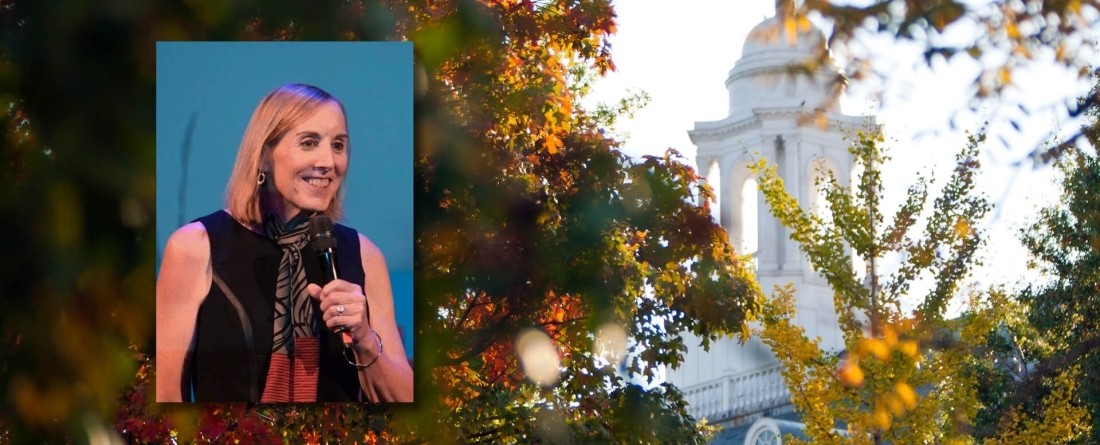
At the start of her professional career, Chloe Schwenke, lecturer at the School of Public Policy, focused primarily on international development. While working as the Managing Director of Siyakhana - a joint venture town and regional planning firm set up by a South African and an American company in 1995, she gained a new focus: the intersection of human dignity and public policy.
The burden of four decades of Apartheid Rule and racially-based inferior treatment in South Africa was a call for action. While proficient as a technical planner, Schwenke realized her next step was developing the language to communicate about quality of life, human dignity, and what a government ought to provide.
Many South Africans “wanted to understand what they could ask for in light of dignity and respect. I felt such a strong pull when they asked those questions that I wanted to be able to connect with them in that way," Schwenke said. “So, I came back to Maryland to get my Ph.D., and master that moral policy vocabulary”
Schwenke’s identity as a transgender woman helps motivate her work in global human rights, especially within the past four years and in the context of a worldwide pandemic. Schwenke has faced adversity in her career as an out transgender woman, so she is using her expertise to support members of the LGBTI community.
“I know these people; they are not just statistics to me,” Schwenke said. “These are real, live people who are out there on the front lines of human rights defenders on the LGBTI spectrum. They are fighting a battle for survival right now against growing autocracy and dictatorships around the world, and for the last four years the United States has been almost entirely absent.”
U.S. absence from LGBTI foreign policy in the last four years motivated Schwenke to work with the Center for American Progress in co-authoring her most recent federal policy advocacy report Transforming U.S. Foreign Policy To Ensure Dignity and Rights for LGBTI People, which she hopes guides future foreign policy and promotes human rights as indicators of human dignity.
“There is an urgency to be in solidarity with them,” Schwenke said. “I don’t speak for them, but I certainly speak with them. Among marginalized LGBTI people, the trans population is the least well-represented and the smallest of that combined demographic, except for intersex people.”
This is why much of this advocacy report and supporting work focuses on human dignity and secular value statements, as opposed to solely empirical data, Schwenke explained. Shifting the focus away from over-reliance on the political economy and towards the idea that people can be motivated by other values like altruism, care, compassion and solidarity make public policy more meaningful, she said.
“That’s what I am trying to do with my students. To get them to see public policy as literally a way to change the paradigms. To get them to think anew about a way of good governance and about public service, and “public service” is a conversation we don’t even have anymore,” said Schwenke. “If our advocacy is only about numbers, then people are just not going to move or take action. Human beings are just not configured that way.”
Bringing the conversation back locally, Schwenke believes that there is a lot of work we still need to do as a community by focusing on more marginalized groups so that no one is left feeling invisible.
"There are eighteen state legislatures right now actively pursuing legislation that negatively targets people like me. This is not theoretical; this is absolutely real. Transgender Americans are fighting a fight for our survival... and we do not like to feel invisible among marginalized people. As we work toward a more inclusive society, we as a school have the mental, intellectual, spiritual, and emotional capacity to address marginalization across the spectrum. We can do the work."
